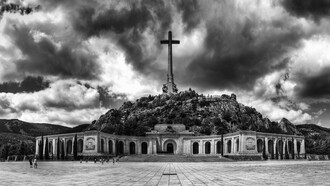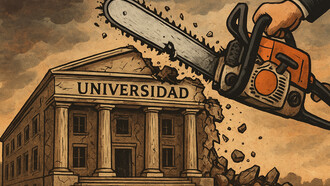The achievements of the nation of Haiti:
- Haiti was the first free black republic in the world.
- Haiti was the second colony in the Western Hemisphere to gain its independence.
- Haiti was the only successful revolution of enslaved people.
- Haiti is a symbol for the hope, determination, and power of oppressed people to achieve freedom and equality.
- Haiti is the most courageous and inspiring story of a people in human history, and a source of inspiration for black people worldwide.
Why have the achievements of Haiti been hidden by denigration since its independence in 1804? We will explore the “unforgiveness” of the West towards Haiti in a collection of articles.
It is not surprising that so many would latch onto and repeat the vicious narrative of Haitians killing and eating pet cats and dogs of neighbors in Springfield, Ohio. This contempt for the Haitian people has historical roots persisting since its beginning as a nation to the present century. Unfortunately, this stereotypical narrative has placed not only the lives of Haitians in danger, but have negatively impacted the well-being of all the residents of Springfield as well.
A one-dimensional stereotypical narrative has characterized Haiti. “Haiti is the poorest country in the Western Hemisphere” is the most often heard refrain of the nation. Beneath this narrative lies a host of other stereotypes related to the “inferior” culture, intellect, and morality of the Haitian people that dehumanize them and make them “other” in the civilized world.
Haiti is characterized as a “pathological” state in which deviance, voodoo, witchcraft, and paganism rule. The revolution is often described as a “savage race war” where blacks unjustifiably attacked white lives and property. The Haitian people are portrayed as hopeless, helpless, childlike, progress-resistant, and with no confidence in themselves to build a prosperous nation. The government of Haiti is described as incompetent, irresponsible, incompetent, corrupt and even deadly. The narrative of the Haitian government is one plagued by political instability, violence, disarray, and immorality.
For a nation that achieved the unthinkable, why has this stereotypical, and dehumanizing narrative persisted and been reinforced since its creation in 1804? Why hasn’t Haiti’s demonstration of a people seeking and achieving freedom not been celebrated? Perhaps, Frederick Douglass, in his speech at the Chicago Fair, on January 2, 1893, provided the answer;” Haiti is black, and we have not yet forgiven Haiti for being black or forgiven the Almighty for making her black.”
Perhaps it was Haiti’s destruction of the ideology of white supremacy that made her a pariah and made her sin unforgivable in the eyes of the white Western world. Absolutely unthinkable to the white man, how could these enslaved, tranquil , obedient, and childlike beings overthrow French rule, and conquer French, Spanish, and British armies? The defeat of these European powers suggests that the ideology of white supremacy was greatly flawed.
Just what about white superiority and black inferiority myths did the Haitian revolution and success totally refute?
First, whites were considered to be genetically superior and blacks inherently inferior. Blacks were thought to be incapable of even imaging the human condition of freedom, to have inferior reactions to physical and emotional pain. As such, blacks were considered to be sub-human, lesser beings. Enslaved on the St. Domingo plantations were treated brutally, they were whipped, burned, raped, limbs amputated, allowed to be eaten by insects and even buried alive. Because of their savage treatment, many of the enslaved died within a few years of being on the plantation. The successful rebellion by beings thought to be not human was unthinkable, but the enslaved proved that they were human, could think, plan, and respond to the physical and emotional pain they endured.
Secondly, the myth of white superiority made whites believe that they should dominate and control those without white skin. For a hundred years this mythology appeared to be true and workable. The revolution however brought into reality the reality that the enslaved blacks would no longer be dominated, they demonstrated through self-determination and perseverance that they would be free of oppression, again something unthinkable in the minds of whites who believed in their own mythology of superiority.
Thirdly, the ideology of white supremacy places blacks at the bottom of the racial, social, political, and economic pyramids. The “place” of blacks is one that denies their humanity and consists of inequality at every level of society. The revolution of enslaved blacks who created the first free black republic in the world destroyed the myth of the black place. The Haitian Declaration of Independence in 1804 made Haiti a model of freedom from colonial rule in the Western Hemisphere established their true place in the history of the world.
Haiti’s destruction of the ideology of white supremacy, myths of white superiority and black inferiority, black inhumanity, and black place in the world was met with disbelief and finally rage. The Western powers were and are still determined to define Haiti’s “place” in world history. Every effort is made to return the nation to the stereotypical narrative that continues to demean and denigrate the Haitian people today.
This cruel experience that Haitians in the United States are currently facing, does however, present an opportunity to correct the stereotypical and mythical narrative that has persisted and is entrenched in the United States mainstream media, as well as explore the machinations of even the United States that have helped to perpetuate the image of and problems that exist in Haitian society today.














